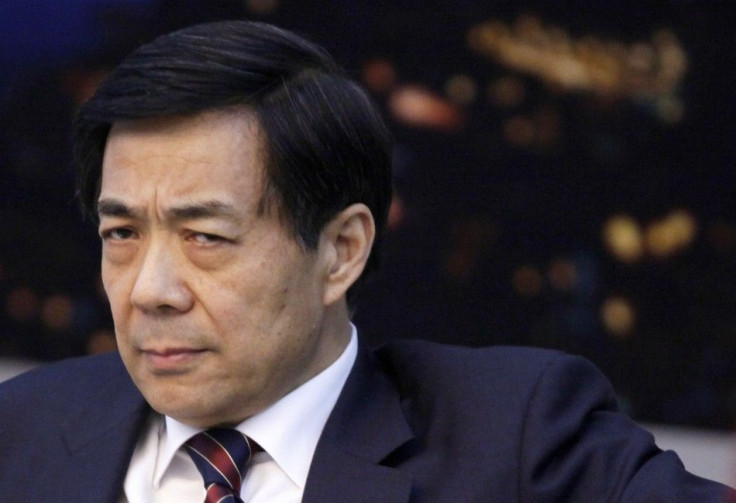10 Chinese Officials Fired In Most Recent Sex-Tape Scandal

Chongqing, a major city located in Southwest China, has seen several political scandals in recent months. Last year, Bo Xilai, the powerful Chongqing party chief who was poised to get a spot on the party’s decision-making Politburo, was dismissed from his position after allegations of bribery and abusing power and a scandal involving his wife, Gu Kailai, who allegedly murdered British expatriate Neil Heywood, whose death made international headlines.
Now, 10 more officials have been sacked following reports of a sex-tape extortion scandal. According to the state-run Xinhua News Agency, the Chongqing city officials were fired after graphic tapes surfaced depicting their trysts with women who had been hired by local real-estate developers. These developers secretly videotaped the encounters and used the tapes to extort construction deals from the local officials.
Last November, the then-secretary of the local Communist Party district, Lei Zhengfu, was caught on tape having sex with a woman who was not his wife. Pictures and video clips of the encounter went viral on Chinese social media; it was the first high-profile sex scandal in the area. Lei’s sex tape was also allegedly filmed by developers, who were hoping to use it as leverage against an official they may have seen as too difficult to bribe.
The recent round of firings highlights an ongoing corruption issue that combines politics, sex and money. The 10 officials reportedly worked at district and national levels and were both party and government members.
The expanding scandal points to how far-reaching corruption has become, penetrating various levels of the political hierarchy.
A political researcher at the Chinese Academy of Social Sciences in Beijing, Liu Shanying, told the Associated Press that what makes corruption so rampant in China is that the grand lifestyle it affords has become common among officials.
“The incident in Chongqing is not accidental or exceptional. It should be said that it is rather common and that the problem is with corrupted lifestyles,” he said. “Many officials have lower moral standards than ordinary people, and the power they enjoy makes it easier for them to do immoral things.”
Though corruption in Chinese politics is not a novel concept, the newly appointed Communist Party leader and president-in-waiting, Xi Jinping, has vowed to prioritize the crackdown against rampant corruption among officials.
On Tuesday, Xi addressed the party’s top anti-graft body, encouraging its members to pursue corruption from top to bottom.
“We must uphold the fighting of tigers [top officials] and flies [low-level officials] at the same time, resolutely investigating law-breaking cases of leading officials and also earnestly resolving the unhealthy tendencies and corruption problems, which happen all around,” he said.
Xi also called for higher moral standards of work for officials, because failure to do so could threaten party stability.
“The style in which you work is no small matter, and if we don’t redress unhealthy tendencies and allow them to develop ... we will lose our roots, our lifeblood and our strength.”
© Copyright IBTimes 2024. All rights reserved.












